EU Changes ELV Regulation Again: Recycled Plastic Content Dispute and Exclusion of Bio-Based Plastics
Recently, the European Parliament passed the new proposal of the EU "Vehicle Design Circularity Requirements and End-of-Life Vehicle Management Regulation" (referred to as the "ELV Regulation") with "431 votes in favor, 76 abstentions, and 145 against".
The biggest change this time is,The new regulation clearly defines recycled plastics as post-consumer plastics, which can be processed through physical or chemical recycling technologies, excluding bio-based plastics.
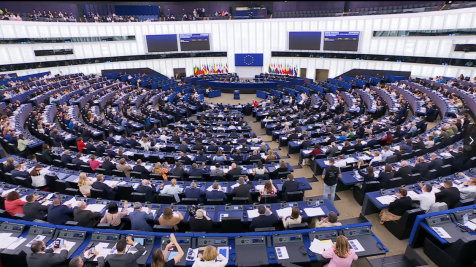
The specific changes in this revision are as follows:
Content target difference: The European Parliament is pushing to set a mandatory standard for the recycled plastic content in new cars at 20%, while the European Council supports a target of 25%. At the same time, the European Parliament advocates that of the required 20% recycled plastic in new cars, 15% should come from closed-loop recycling of end-of-life vehicles, lower than the previously proposed 25%.
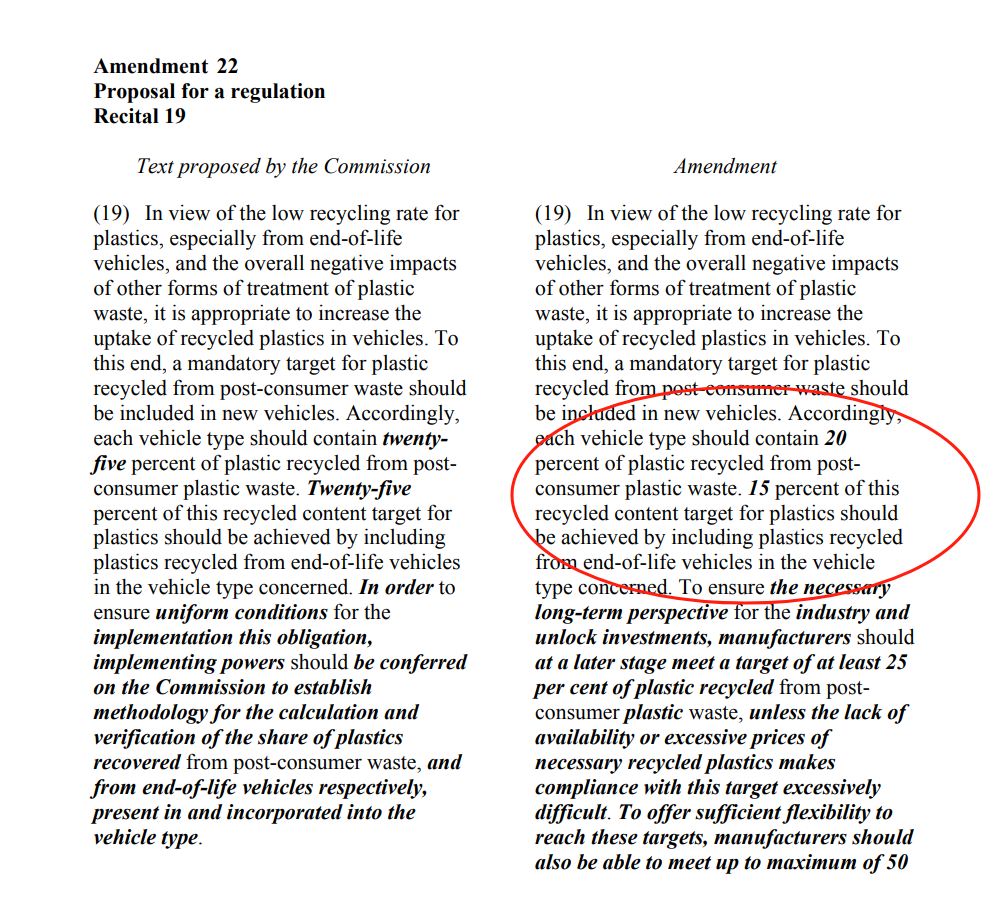
Advancement phase differences: The European Parliament requires that within six years of the regulation coming into effect, all new cars must meet a minimum standard of 20% recycled plastic content, and proposes that ten years after the regulation comes into effect, if the supply of necessary recycled plastic is sufficient and the price is reasonable, the standard can be raised to 25%. The European Council, on the other hand, proposes a "three-phase advancement" plan, which requires reaching 15% within six years of the regulation coming into effect, 20% within eight years, and 25% within ten years.
The rules for identifying recycled materials exclude bio-based materials.
The text mentions mechanical recycling and chemical recycling as alternative technological pathways for recycled plastics in the automotive industry, providing technical guidance for industry practices.
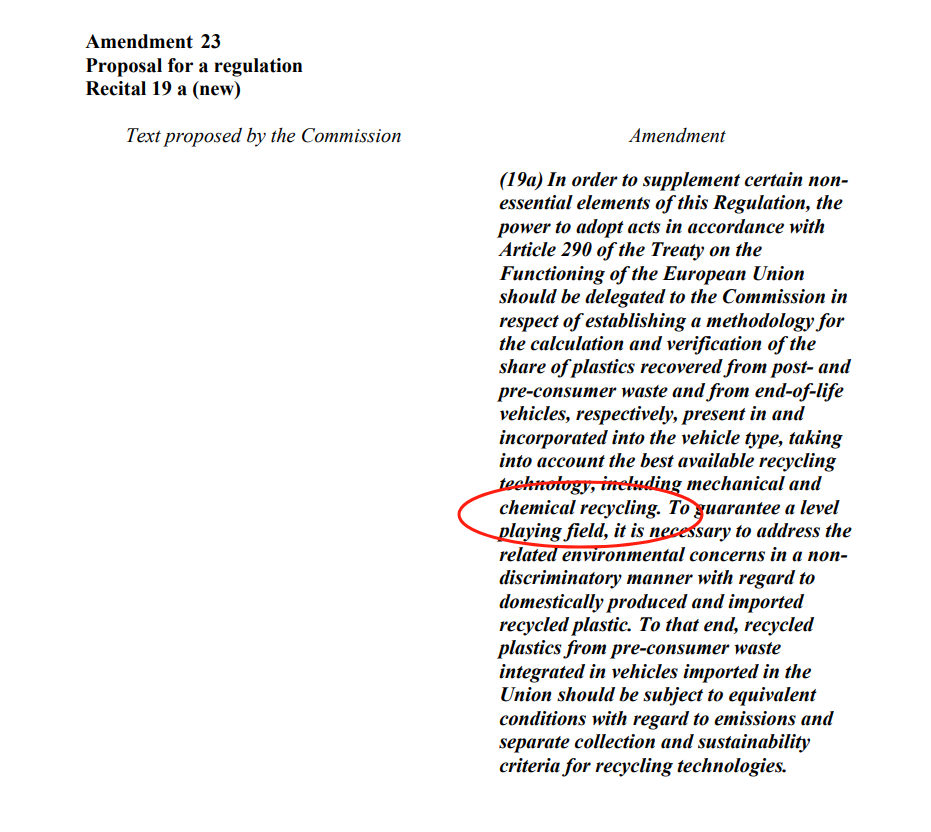
The text also states that, to ensure a level playing field, environmental issues related to recycled plastics must be addressed in a non-discriminatory manner, treating recycled plastics produced within the EU and imported recycled plastics equally.
For recycled plastics produced from pre-consumer waste imported into the EU, emission and separate collection conditions equivalent to those in the EU must be met, and the recycling technology must comply with sustainability standards in order to be counted towards the recycled plastic content targets. Post-consumer waste is not subject to these additional requirements; manufacturers may use pre-consumer waste to fulfill up to 50% of the recycled plastic content target.
The final document removed the previous draft’s provision that “bio-based plastics can be counted towards the recycled plastics target,” and did not include bio-based plastics within the scope of target accounting.
Regarding recyclability, the text mentions that new vehicles must meet standards for reusability, recyclability, and renewability. For example, according to ISO 22628:2002 calculations, the design mass of the vehicle should be at least 85% reusable or recyclable, and at least 95% reusable or recyclable. In the future, new calculation methods and corresponding ratio standards may also be adopted.
To ensure the effective implementation of the new regulations, the European Commission has established an evaluation and adjustment mechanism: five years after the regulations take effect, assessments will be conducted based on factors such as material supply, technological availability, and the quality of recycled materials. This will verify whether manufacturers are on track to meet their recycled plastic targets, and based on the assessment results, recommendations for target revisions may be made to ensure the flexibility and feasibility of the rules.
At present, both the European Parliament and the European Council have adopted their respective position papers. Next, a compromise must be reached through trialogue negotiations. In its statement, the European Parliament indicated that negotiations are expected to "commence immediately." It should be noted that the European Council represents the positions of the governments of EU member states, while the European Parliament represents the interests of EU citizens. The outcome of their negotiations will directly impact the final form of the new regulations, which is of critical importance to the development of the automotive and plastics industries.
In response to the voting results, Plastics Europe has clearly expressed its support for the European Council's proposed mandatory target of 25% recycled plastic content, considering it more conducive to helping Europe build a scalable, circular, and competitive plastics industry. The association also expressed concerns about the exclusion of bio-based plastics in the document and called for allowing bio-based plastics to account for up to 5% of the overall target, rather than being completely excluded.
Minimum Recycled Material Usage Requirement for Vehicles ↓
Including plastic, steel, aluminum alloy, magnesium alloy, and rare earth metals
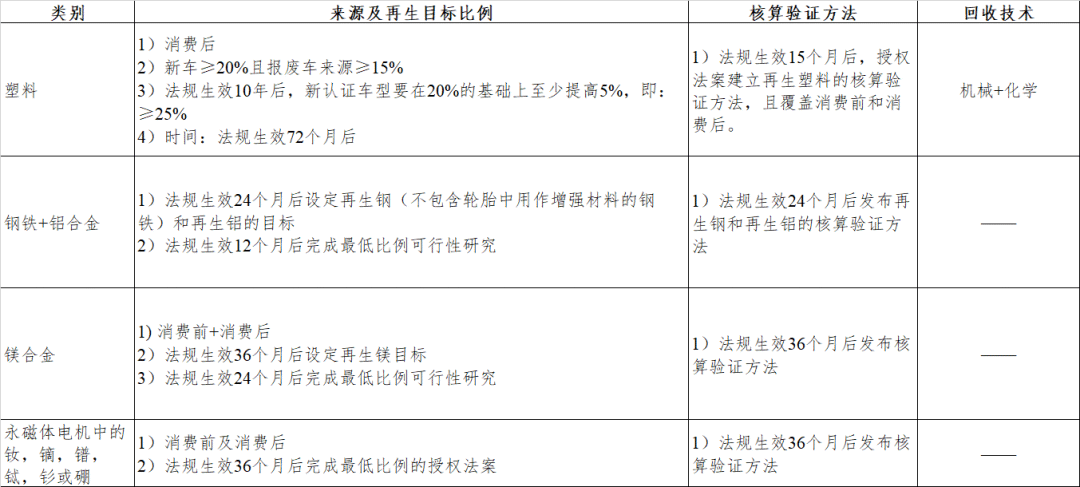
Differences in Recycled Plastic Targets Across Versions ↓
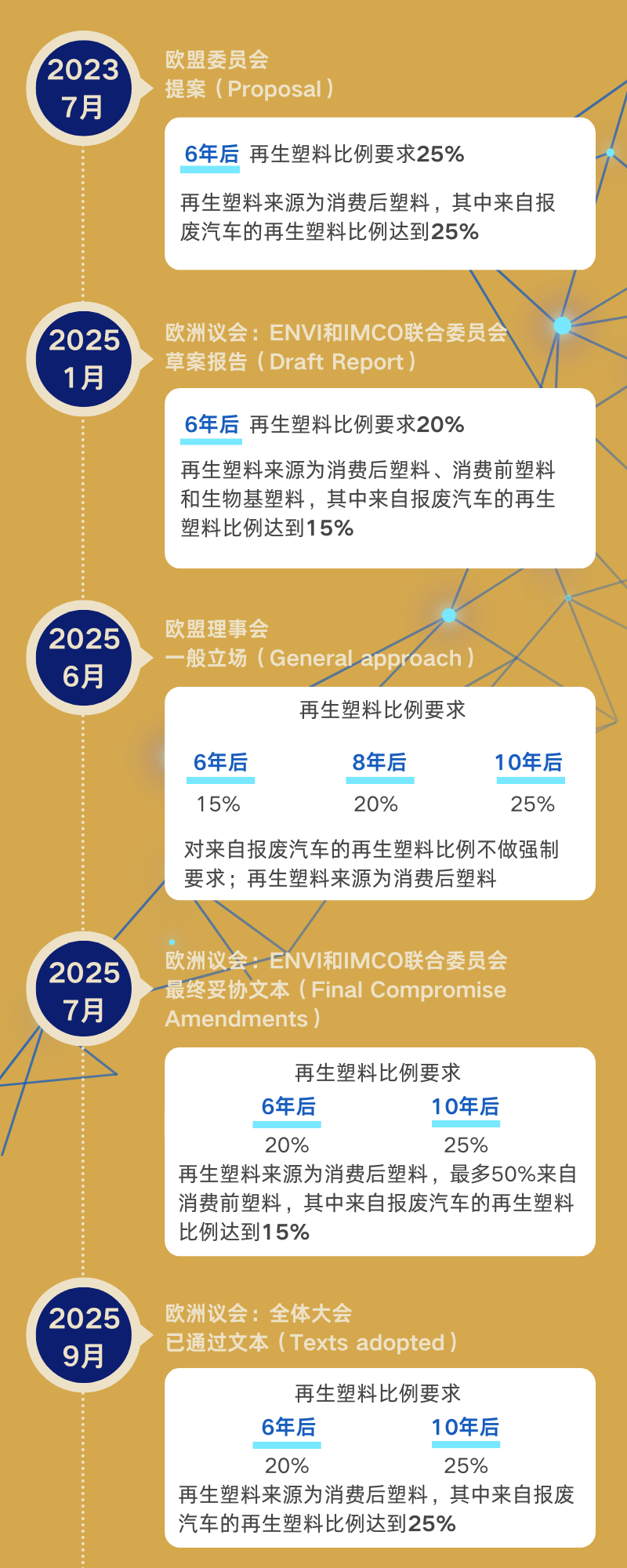
Image source: GIZ
【Copyright and Disclaimer】The above information is collected and organized by PlastMatch. The copyright belongs to the original author. This article is reprinted for the purpose of providing more information, and it does not imply that PlastMatch endorses the views expressed in the article or guarantees its accuracy. If there are any errors in the source attribution or if your legitimate rights have been infringed, please contact us, and we will promptly correct or remove the content. If other media, websites, or individuals use the aforementioned content, they must clearly indicate the original source and origin of the work and assume legal responsibility on their own.
Most Popular
-

Key Players: The 10 Most Critical Publicly Listed Companies in Solid-State Battery Raw Materials
-

Vioneo Abandons €1.5 Billion Antwerp Project, First Commercial Green Polyolefin Plant Relocates to China
-

EU Changes ELV Regulation Again: Recycled Plastic Content Dispute and Exclusion of Bio-Based Plastics
-

Clariant's CATOFIN™ Catalyst and CLARITY™ Platform Drive Dual-Engine Performance
-

New 3D Printing Extrusion System Arrives, May Replace Traditional Extruders, Already Producing Car Bumpers






